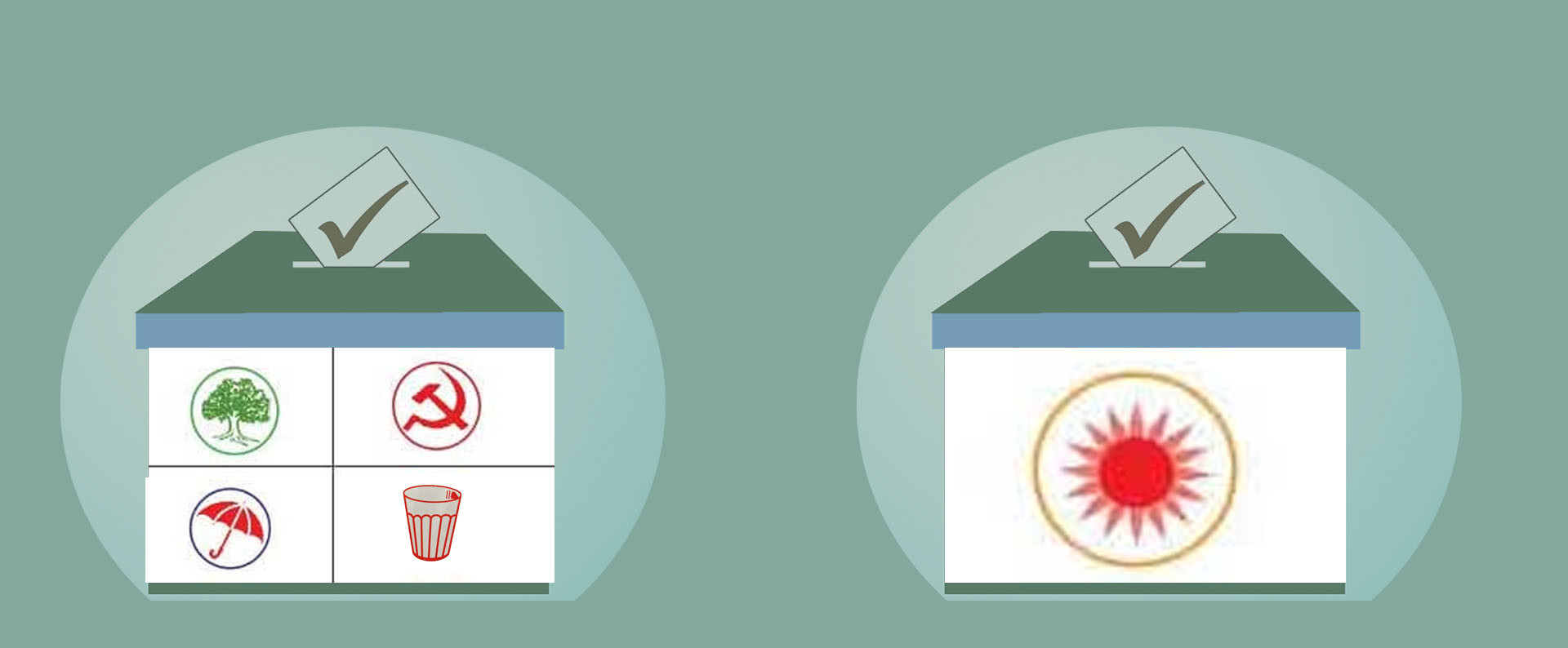UML had won the highest number of seats in the last local election winning chiefs in 294 out of the 753 local bodies.
But it had won in 185 of those bodies by less than 1,000 votes, and the margin was even less than 100 in 25 bodies.
The fact that UML has split since then and the party thus formed, CPN (Unified Socialist), has allied with Nepali Congress (NC), CPN (Maoist Center), Janata Samajwadi Party (JSP) and Rastriya Janamorcha this time makes that small margin even more precarious.
UML candidate was elected chief of Kamala Rural Municipality in Jhapa through lucky draw after being tied with NC candidate at 8,275 votes while NC candidate lost by one vote to UML in Chaurpati Rural Municipality in Achham. Similarly, UML candidate had defeated candidate of CPN (Maoist Center) by just eight votes in Ramprasad Rai Rural Municipality in Bhojpur.
Analysis of the 185 local bodies won by UML with a margin of less than 1,000 votes by Setopati shows that UML had won three with a margin of less than 10 votes and 12 by less than 50 votes. Maoist Center had finished second in two of those 12 bodies while NC had finished second in the rest 10.
Similarly, UML had emerged victorious by less than 100 votes in 25 places, 200 votes in 52 places, 300 votes in 74 bodies and 500 votes in 118 places.
UML had defeated NC-Maoist alliance in 16 out of the 185 bodies with margin of less than 1,000 votes, NC-Federal Socialist Forum alliance in one place and NC-Janamorcha alliance in one place.
The coalition candidates face many rebel candidates from parties in the coalition while the voters from one party may not be too enthusiastic to vote for the common coalition candidate from another party.
But the split of UML and alliance among the five-party coalition still looks set to cost UML dear.

